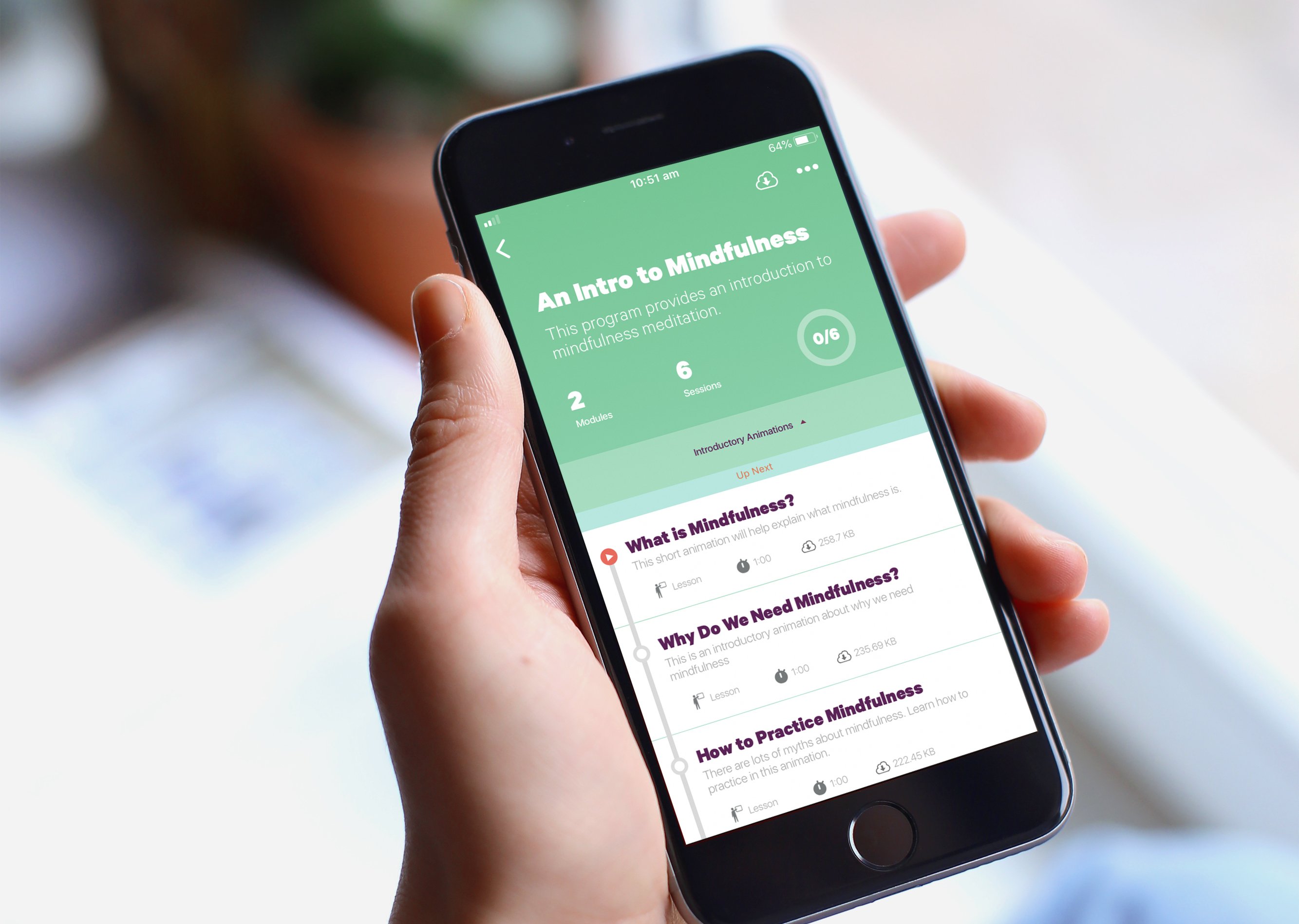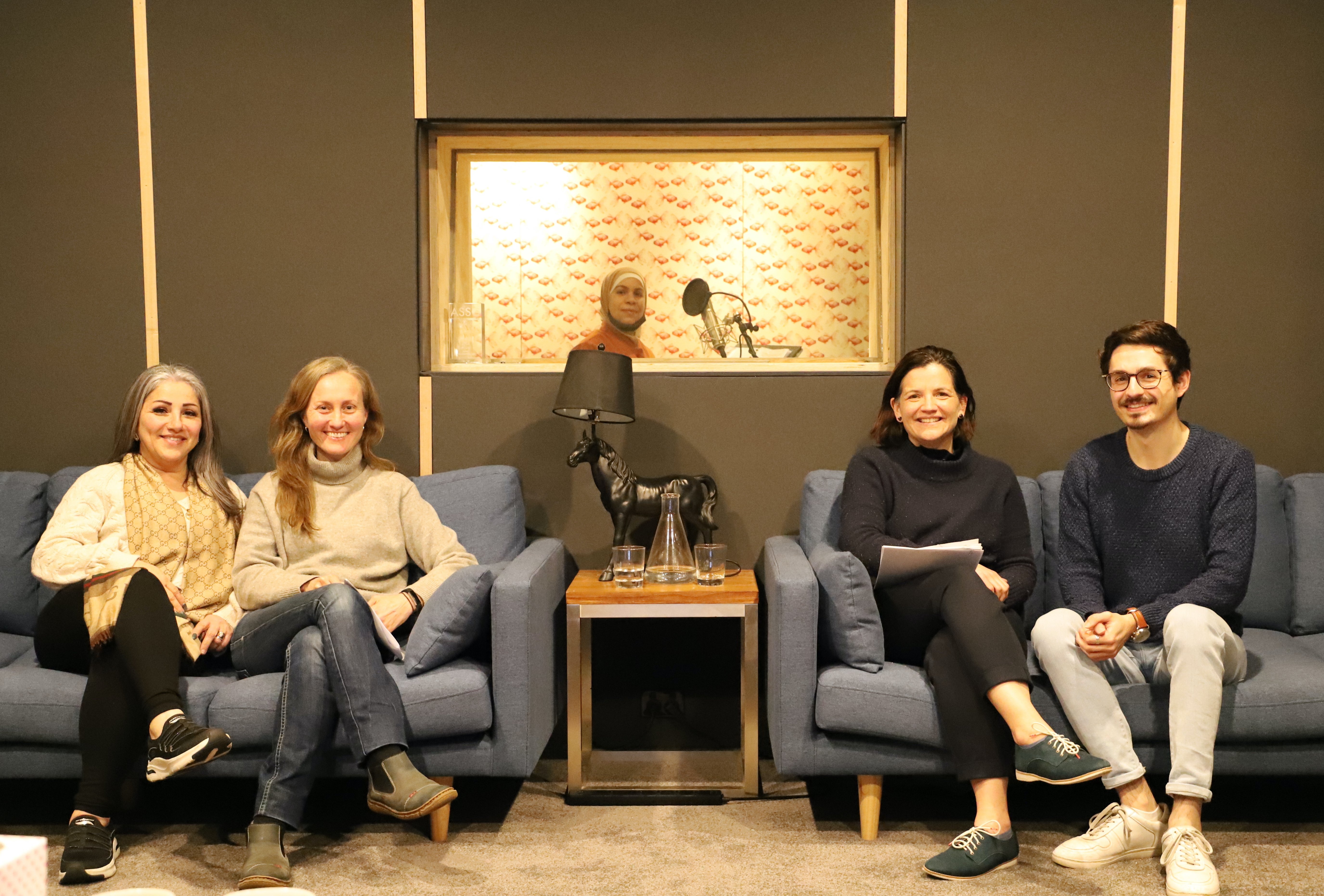A common thing we hear at Smiling Mind is “I can’t meditate...my mind is too busy, I can’t clear it” - are you one of those people? If yes, keep reading. If no, you might find this interesting anyway…
So what exactly is mindfulness?
Often people think that in order to be truly mindful we have to cleanse our minds of all perceptions or past experiences, halting or controlling our thoughts completely and existing in a chasm of unconditional positivity. This is not the case at all.
Mindfulness does not ask us to stop or control our thoughts, judgements or negative experiences. Rather, it asks that within our experiences, we simply pay attention to what is happening in the moment.
This means allowing the thoughts that are often entangled with judgements, opinions and preferences, to exist exactly as they are, observing them with compassion, awareness and non-judgement.
It is more about intention than anything; being able to turn one’s attention intentionally towards what is happening in the present and embracing this with curiosity, openness and acceptance.
In order to have full and mindful experiences in the present moment, we must firstly understand that we can separate ourselves from our thoughts.
![]()
Using strategies, such as taking some time to be still and focusing on the breath, allows us the time to practice this skill, making it easier to incorporate mindfulness into all of our daily experiences.
Why does it often seem so difficult to be mindful?
A large part of the way humans function in the world involves perceiving things through the lens of past experiences, connecting and drawing on our experiences and creating an ever-evolving way of seeing and being in the world.
The mind plays an important role in our lives, as without the mind and the boundaries and lenses that it creates for us, we would have no ability to individuate ourselves and make sense of our world.
As we develop as humans, the mind can become more and more conditioned by past experiences, using these to develop attitudes, make decisions and project ideas about the future.

Our thoughts are not new and nor are they permanent; rather, they are transitory accumulations of what we have already learnt and experienced. Some of these thoughts seem to make us feel good while others seem to make us feel bad.
However, regardless of the positive or negative emotions that these thoughts generate, we rarely stop to observe what is truly happening within our mind, body and surroundings.
We instead spend much of our time existing within the mind’s projections, memories and judgements.
This draws us further and further away from being able to experience life in the present moment and we often find ourselves engulfed in spiralling thoughts.
Rather than the mind being a useful adjunct to our being, we associate so deeply with our thoughts that we are often controlled by the apparent inescapable journeys that the mind takes us on. We then become unable to pay attention to what is actually happening in the present.
But isn’t positive thinking a good thing?
It is very easy to move away from having an awareness of the present moment, regardless of whether we are in a positive or negative state of mind.
When we are feeling anxious, depressed, angry or sad, we can be quick to get caught up in negative thoughts- ruminating, worrying and becoming frustrated about the past or projected future events.
![]()
However, even when we are immersed in happy and positive thoughts, it can still be very challenging to be mindful, as our external circumstances, including relationships or projects and events that we are looking forward to, are places that the mind enjoys escaping to in order to feel good in the moment.
In fact, often the anticipation of a positive occurrence in the future, can bring the mind more joy than when it actually happens.
During the actual experience that we have been looking forward to, the mind may begin to again journey into the past or future, thinking about ways that it may relay this experience to others or judging or analysing how good or bad the experience is compared to expectations.
Once again, we are quickly removed from allowing ourselves a mindful experience. Our physical bodies are going through the motions, but our minds are elsewhere and the more we do this (even in relation to seemingly positive thoughts), the more challenging it becomes to remain rooted within our present experience.
So what about meditation? Is this the same thing as mindfulness?
A daily meditation practice can offer enormous benefits for anyone wishing to live a more fulfilled and connected life.
Meditation is a way of practising mindfulness and a steady meditation practice is one of the best ways to help us develop mindfulness in our daily life.
It strengthens our ability to react and perceive things with greater clarity, openness and awareness which in turn improves our ability in a range of areas, including dealing with stress, regulating emotions, making decisions, creating positive relationships and showing resilience in the face of adverse conditions.
![]()
It also allows us to connect with a renewed depth and joy when engaging in experiences, as we are truly able to participate in our present moment.
Obviously, like any skill, the more we practice, the more automatic it becomes.
For some, it is extremely difficult to even sit for 30 seconds and focus on the breath, as the mind is so used to removing itself from the present moment. This is why teaching mindfulness to children can have such a significant impact on their development.
Imagine if as an adult, it was natural and easy to live joyfully in the present, being compassionate with any thoughts, feeling and judgements that arise and understanding at a deep level that the present moment can always be a rich and fulfilling experience, regardless of conditions.
Ready to get started?
We thought you’d never ask!

The easiest way is to start is to simply download the FREE Smiling Mind app. Start with An Intro to Mindfulness and see how you go.
All you need is 10 minutes a day to see real changes.

.jpg)










.jpg)




